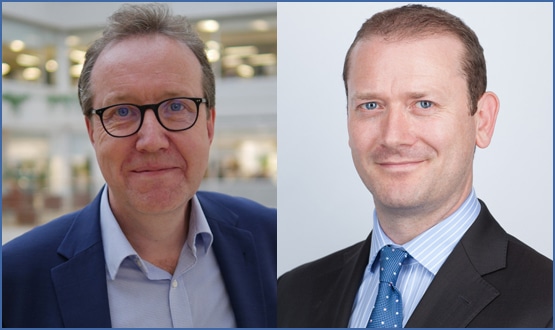After completing its acquisition of DXC’s healthcare provider software business, Digital Health News spoke to Dedalus Health about what lies in store for the Italian company.
On 1 April Dedalus completed its £350million acquisition of DXC’s healthcare provider software business, making it the mostly widely installed NHS hospital software supplier.
It’s the latest in a string of deals, including the £820m purchase of part of Agfa’s healthcare business in May 2020, and has catapulted the Italian firm into becoming the biggest health software company in Europe.
In an interview with Digital Health News, Dedalus’ regional general manager for the UK and Ireland, Colin Henderson and Will Smart, the former NHS national CIO and now global director of external relations at Dedalus, explained what the latest developments will mean for NHS customers.
“First off, it creates a really strong European business. We have over 5,500 staff with 2,500 in R&D [research and development], the largest health IT R&D team in Europe,” said Henderson.
“Second, it means that we are now part of a company that understands European publicly-funded healthcare systems and has experience of delivery of regional care.”
Growing footprint
Dedalus was founded in Florence, Italy, in the 1980s, beginning as a GP electronic patient record (EPR) supplier and then expanding into France and other markets through acquisition. The company has a big presence in primary care, regional integrated care, care co-ordination and diagnostics.
Following its recent acquisitions, it now has a footprint in 40 countries including the UK, Europe, Australasia and South America, with the UK accounting for more than half of its European business.
Asked how NHS customers will benefit, Henderson said: “The most obvious gain will be access to regional care and integration experience and tools – which were not part of the DXC portfolio.”
He added that another change will be “a big focus on platform and enabling data to move around, through open standards and open APIs”.
For customers, that will mean being able to work with Dedalus to put in a cloud-based platform to enable data to move across a region.
Smart added: “The regional data focus is where we now need to move to beyond EPRs, moving beyond a siloed mentality and asking ‘how do people need to interact with that data?’.”
Aligning with the NHS
The European and public healthcare system that underpins Dedalus provides a different perspective closely aligned with that of the NHS, Smart explained.
“Dedalus brings a different perspective on digitising health and care,” he said.
“Dedalus’ focus is social medicine, very similar to the NHS, and a different set of values to the US. The key, I think, is bringing that experience gained in comparable healthcare systems to bear.”
Asked how this will evolve in the new world of Integrated Care Systems (ICS), Smart adds: “I think it will play out in a number of ways, starting with a difference in tone in how we engage, and being much more open to engaging and co-creating the answers.
“One of the key ideas used a lot in Dedalus is the concept of building out a healthcare eco-system – to build open platforms and open solutions.”
According to Smart, Dedalus has already begun conversations with NHSX and others on how to develop an open interoperability and data platform.
“How we connect disparate systems across ICSs needs an evolutionary not revolutionary approach,” he says.
“It’s about choice and being respectful of the different building blocks people have in place.”
Henderson adds: “You don’t have to rip and replace, but instead build on the assets you have. It can be very disruptive and expensive to start again.
“You instead have a choice to move forward with a cloud-based open platform and evolve an eco-system. We frame it as systems of record [clinical], system of insight [analytics] and systems of engagement [patient-facing].”
Still room for the EPR
Asked whether Dedalus remains an EPR supplier in an NHS hospital market, where US rivals Cerner and Epic have been making the running, Henderson said: “Organisations still require the EPR and we still have a lot of NHS customers – around 170 – we are supporting on their digital journeys.
“We just don’t believe a two-year deployment process works in a world where we need to be doing multiple things at the same time. For most CIOs, problems on data and applications are a microcosm of the ICS challenges they face.
“As we look forward to ICSs we need to start to rethink what we digitise – such as how do we deal with a year’s worth of capacity that has yet to be delivered.”
Joining up healthcare
Smart and Henderson agree that the Covid-19 crisis has unexpectedly placed digital centre stage, and that it has coincided with a structural shift to focus on joined up health and care to address the social determinants of ill-health.
“We are in a potential pivot point about how health and care gets delivered, the NHS demonstrated how it can be delivered virtually during the crisis and we now have massive pent up demand,” Smart said.
“Then you have all the social determinants of health and how that impacted outcomes. All of that creates a real opportunity to do things differently and engage a whole new range of stakeholders. And that’s the approach Dedalus brings, and I think that’s a really interesting proposition.”

